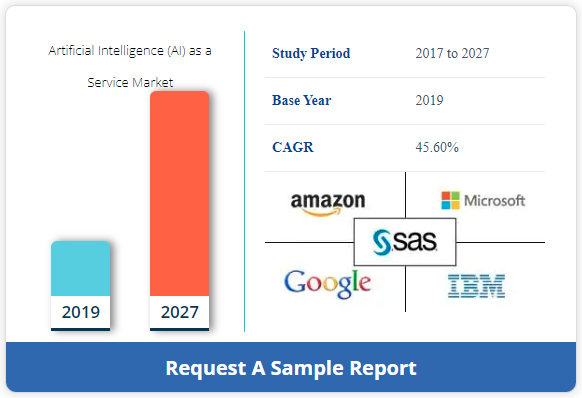Artificial intelligence (AI) has made tremendous strides over the recent years and in a wide range of applications and the benefits of AI stem from rapid growth of data and upsurge of mobile devices. Artificial intelligence is a computational model that enables computer to learn from data and create solutions for complex functions. AI has been extensively applied in large scale fields from robotics to airplane flight control. Artificial intelligence (AI) generally refers to the stimulation of human intelligence in machines which are programmed to have a thinking process similar to humans and mimic their actions. AI-based applications are developing rapidly in terms of deployment, adaptation, computing speed, and capabilities. Artificial intelligence has induced considerable achievements in various fields such as computer vision, natural language processing, and autonomous vehicles, among others.
Artificial intelligence has revolutionized the field of information technology and reshaped the way we live. AI-based applications have been developed rapidly in terms of deployment, adaptation, computing speed, and capabilities. Artificial intelligence-based systems have reduced the repetition of human activities radically and have enabled generation of results in relatively shorter times. Artificial intelligence systems have grown more capable of handling tasks due to increase in their size and complexity. Over the recent years, intelligent systems have been widely used for automating daily routines, for audio and photo recognition, to enable accurate diagnostic and clinical decision in medicine, and for accelerating research in various fields of sciences. Artificial intelligence (AI) technologies play an important role in effectively analysing and utilizing extensive amounts of health and medical data.
Read More: The Future Of Digital Marketing: New Technology Trends
Artificial Intelligence and Machine Learning
While AI refers to the broad science of mimicking human abilities, machine learning is a subset of artificial intelligence that trains a machine how to properly learn. Machine learning automates analytical model building by leveraging data from neural networks, statistics, operations research, and physics to discover hidden insights in data without being programmed where to look. Machine learning enables a computer system to make accurate predictions or take some decisions by leveraging historical data.
Machine learning can seamlessly go beyond human intelligence and is primarily used to process large quantities of data rapidly using algorithms that can change over time and get better at what they’re meant to do. Machine learning can spot patterns and identify anomalies that can indicate a problem which can be then addressed by humans. According to Reports and Data, global machine learning market is expected to reach USD 183.89 billion in 2030 and register a CAGR of 44.1% during the forecast period. With rapid growth of smart devices and integration of IoT, the cloud networks have been witnessing extra burden leading to vulnerabilities in cloud computing infrastructure. This has led to running machine learning algorithms on local devices, called Edge ML.
Edge Machine Learning (ML) has enabled smart devices to analyse the massive data sets locally by leveraging machine and deep learning algorithms while decreasing dependency on cloud networks. Edge ML can reduce latency, conserve bandwidth, enhances privacy, and create smaller applications. Over the recent past, edge machine learning has become of the most commonly discussed tech advancements ever since the advent of the Internet of Things (IoT). Edge ML gained massive popularity with a surge in smart devices and adoption of cloud-based infrastructure. Edge ML effectively analyses and processes incoming data at the source and determines and assesses what needs to be processed utilizing powerful algorithms in the cloud and what can processed locally.
Edge ML seamlessly solves major security concerns related to storing personal user information on the cloud network while also reducing the burden and congestion on cloud networks by processing datasets locally. In addition, it enables real-time processing of the data which is a limiting factor in the conventional cloud-based smart devices. Real time processing of data has become crucial for advanced technologies such as autonomous vehicles and medical devices. Currently, extensive research is being carried out to develop edge ML systems in hospitals and assisted living facilities to monitor vital parameters of patients and these technologies can be life-saving as they can notify staff in real-time to accelerate decision-making process.
Artificial Intelligence and its Role in Advancing Medical Sciences
Artificial intelligence-based systems have been extensively used in medical sciences for applications such as accurate diagnosis of patients, end-to-end drug discovery and development, transcription of medical documents, and improving communication between healthcare providers and patients. Artificial intelligent systems in healthcare include systems that can handle large amount of data with machine learning algorithms which generates useful information which can help solve a well-defined problem in the medical system.
A plethora of artificial intelligence-based systems are being used in the medical and healthcare field ranging from online scheduling of appointments, online check-ins in medical centres and clinics, reminder calls for appointments, digitization of medical records, and immunization dates for younger and adult patients to drug dosage algorithm and adverse effect warnings, among others. AI-enabled computer application have the potential to help primary care physicians in accurately identifying patients who need extra attention and provide personalized protocols for each individuals. Artificial intelligent-based systems are widely deployed in healthcare sector to augment patient experience, patient care, and provide support to physicians through AI-based assistants. It can also help address potential supply and demand challenges. Artificial intelligence is a disruptive field of computer having the potential to completely transform the practice of medicine and delivery of healthcare.
Read More: How Artificial Intelligence and Robots are Changing The World? Use Cases of AI and Robotics
The Bottom Line
Artificial intelligence and its systems – in various forms and degrees – have extensively been used to develop and advance a broad range of fields including banking and financial markets, supply chains, retail, e-commerce, manufacturing and production, healthcare, and education, among others. AI has been a crucial enabler of novel business innovations within the technology industry such as web search, content recommendations, targeted advertising, and autonomous vehicles. Benefits of artificial intelligence systems are being utilized every day – from spam-free mails to smart watches that input data from accelerometers and others to shopping on e-commerce sites. AI has radically transformed everyday lives of individuals and changed the way we receive and process the information.


